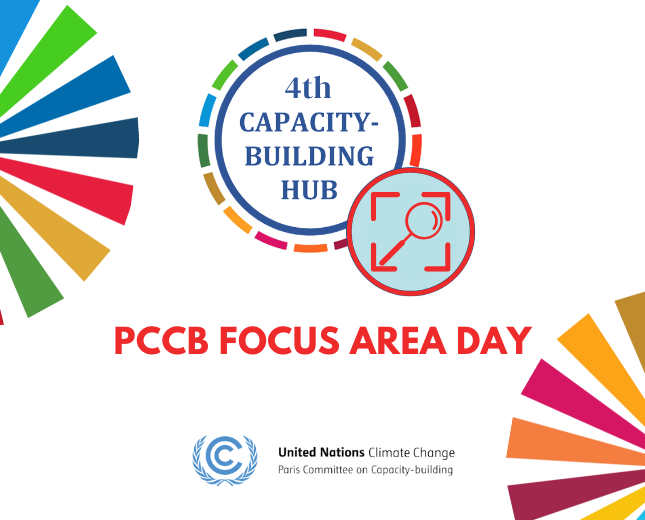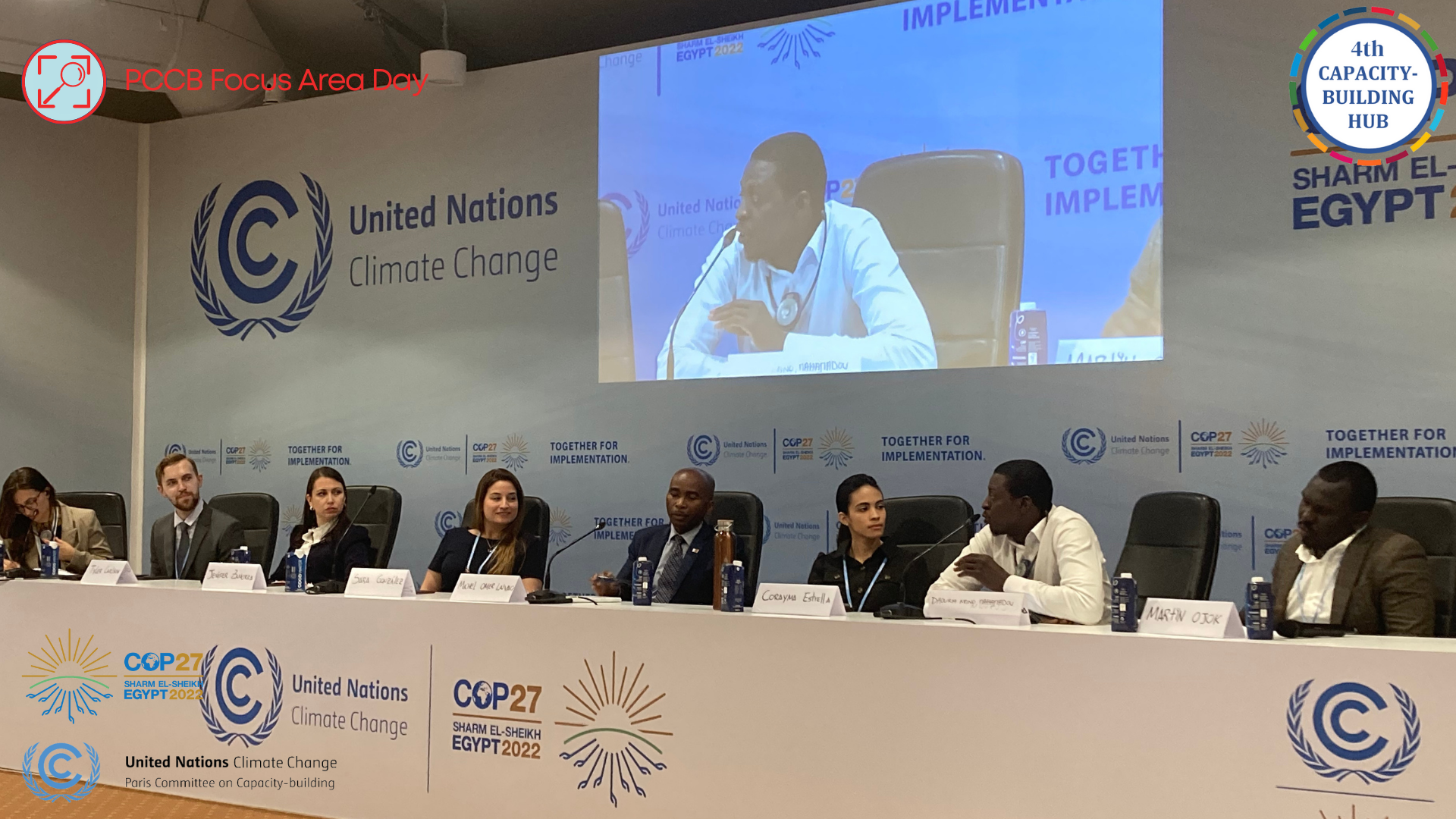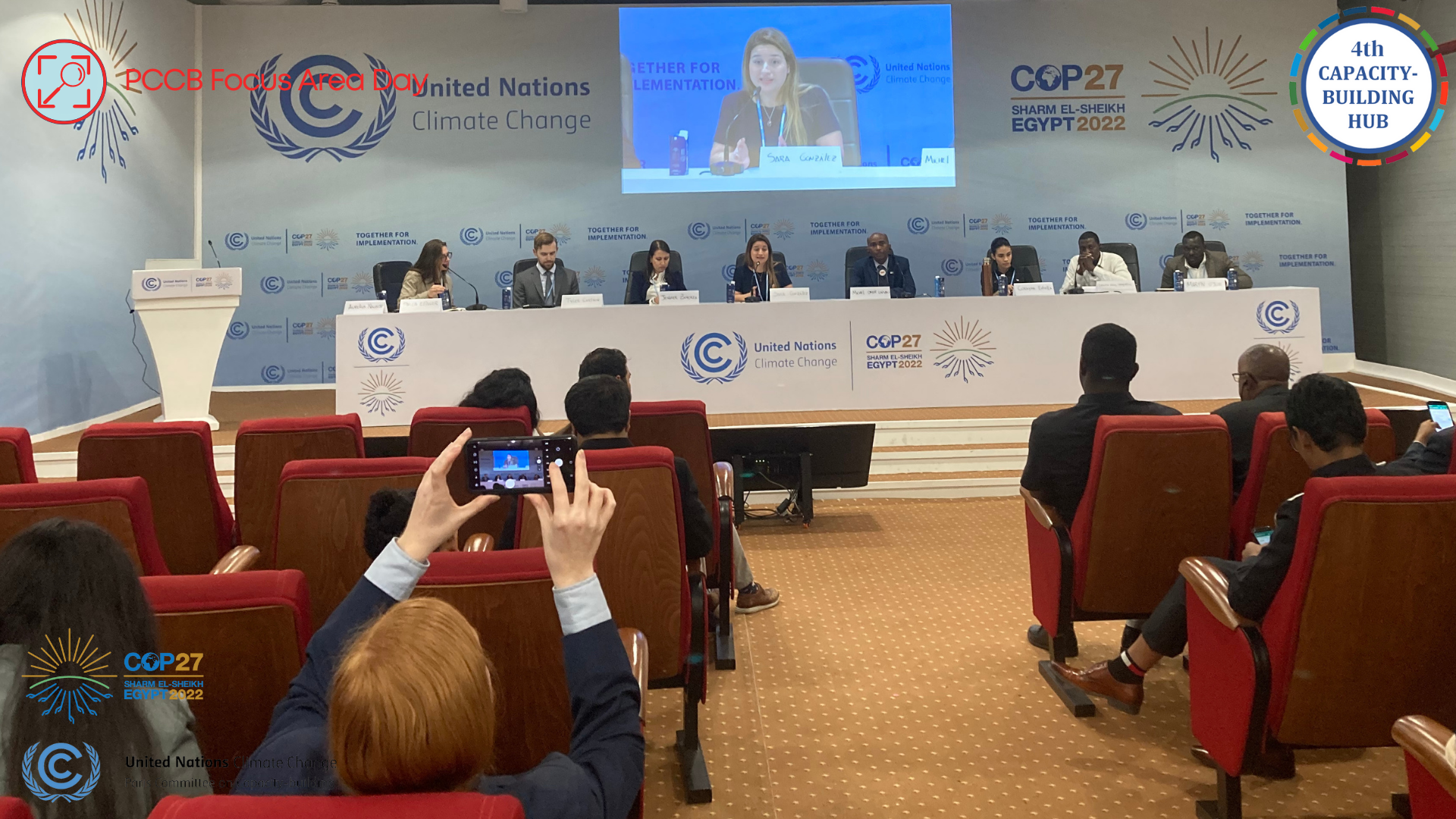Event Recording
Organizers
Background
Capacity building is a key enabler for developing countries in the cycles of increasing ambition and implementation of climate commitments. Implementation of NDCs requires substantial increase and enhancement in national, subnational and sectoral capacities to formulate and carry out mitigation and adaptation actions. Despite its centrality for achieving the Paris Agreement, several challenges often hinder the impact of capacity building, including little monitoring, lack of understanding of gaps and needs and limited effectiveness of capacity building processes.
This event convened partners to Impulsouth to discuss the state of knowledge about opportunities and approaches to enhance capacity building for NDC implementation, especially among youth and with a gender sensitive approach.
Impulsouth is an alliance of organizations working collaboratively to increase knowledge and capacities on climate action in developing countries. It is funded by the International Development Research Center (IDRC), coordinated by Fundación Avina, and implemented by United Nations University (UNU) and FLACSO Ecuador in coordination with national research institutions and governmental partners from Dominican Republic, Guatemala, Madagascar, Niger, Uganda and Zambia.
Objectives
The main goal of the event was to discuss progress and approaches for more effectiveness in capacity building for climate action and NDC implementation, especially for youth and with a gender sensitive approach. Thereby, we hope that the event contributed to enhancing the conditions for developing countries to make progress in climate adaptation and mitigation.
Structure & Speakers
| Time |
Segment & Speakers |
| 10 mins |
Welcome and opening remarks
- Erin Tansey, Director of the Sustainable Inclusive Economies Program, International Development Research Center
|
| 10 mins |
Seven years on from the Paris Agreement, what have been game changers to make progress in capacity building for climate action among youth in your country/region?
- Michel Omer Lavio, Ministry of Environment and Sustainable Development, Madagascar
|
| 15 mins |
Assessing gaps in capacity and knowledge is a first step to capacity building. What have been key findings and uses of capacity gaps assessments in your country/region?
- Sara González Troncoso, Head of International Relations, National Council on Climate Change, Dominican Republic
|
| 5 mins |
While stronger capacities are a building block for NDC implementation, there is still a lot we don’t know about it. What are key takeaways from and for the Global Stocktake in this agenda? Please consider youth and gender in your reflections.
- Jenifer Calderon Cintora, International Cooperation Advisor, Ministry of Environment and Natural Resources, Guatemala
|
| 20 mins |
Interventions & questions from the audience.
How global cooperation enhances the effectiveness of capacity building for climate action among youth and women in the global south?
|
| 5 mins |
Closure
Moderator: Paula Ellinger, Climate Action Director, Fundación Avina
|
Key Outcomes
- Learning from the experiences of people within governments is key to learning best practices
- Financing and data are two key factors which needs to be scaled up to effectively implement NDCs
- Mainstreaming youth is necessary to reinforce capacities




